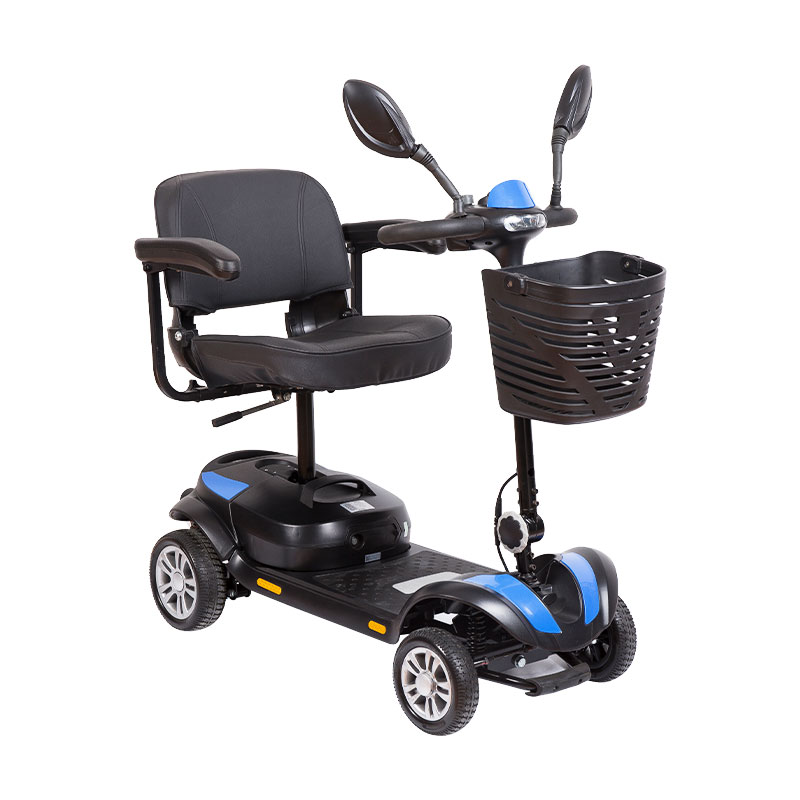What are the environmental considerations in the production and disposal of portable electric wheelchairs?
The production and disposal of portable electric wheelchairs involve several environmental considerations that span the lifecycle of the product:
Materials Selection:
Sustainable Sourcing: Choosing materials sourced from responsibly managed forests and suppliers committed to reducing environmental impact.
Recyclability: Selecting materials that are recyclable at the end of the wheelchair's life, such as metals, plastics, and electronics components.
Manufacturing Processes:
Energy Efficiency: Implementing energy-efficient manufacturing processes to reduce greenhouse gas emissions and energy consumption.
Waste Minimization: Minimizing waste generation through efficient production practices and recycling/reuse of manufacturing by-products.
Use Phase:
Energy Consumption: Promoting energy-efficient designs and components to minimize electricity consumption during use.
Battery Management: Implementing technologies to optimize battery life and reduce the environmental impact of battery disposal.
End-of-Life Disposal:
Recycling: Designing wheelchairs for easy disassembly and recycling of components at the end of their useful life.
Hazardous Materials: Ensuring proper handling and disposal of hazardous materials such as batteries and electronic components to prevent environmental contamination.

Packaging and Transportation:
Reducing Packaging Waste: Minimizing packaging materials and using recyclable or biodegradable packaging materials.
Transportation Impact: Considering the environmental impact of transportation methods used to distribute wheelchairs to consumers.
Lifecycle Assessment (LCA):
Conducting lifecycle assessments to quantify the environmental impacts of portable electric wheelchairs across their entire lifecycle, from raw material extraction to end-of-life disposal.
Using LCA results to identify areas for improvement in environmental performance and sustainability practices.
Addressing these environmental considerations requires collaboration across the wheelchair manufacturing industry, suppliers, regulatory bodies, and consumers to implement sustainable practices and reduce the overall environmental footprint of portable electric wheelchairs.


 English
English Deutsch
Deutsch







-3.jpg?imageView2/2/format/jp2)
.jpg?imageView2/2/format/jp2)






